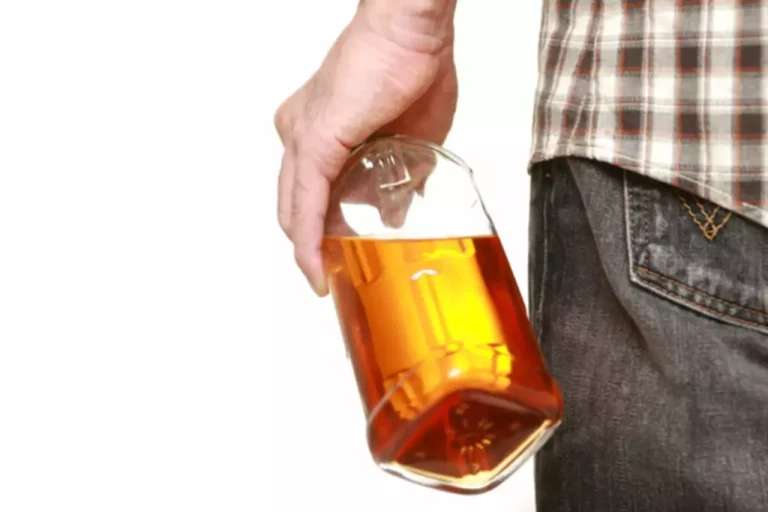Alcohol Withdrawal: Symptoms, Treatment, Timeline

Moderately severe AWS causes moderate anxiety, sweating, insomnia, and mild tremor. Those with severe AWS experience severe anxiety and moderate to severe tremor, but they do not have confusion, hallucinations, or seizures. When not properly treated, AWS can progress to delirium tremens (Table 38–10). Abusing alcohol while living with mental health conditions is incredibly dangerous. Using alcohol to combat depression symptoms not only makes the depressive symptoms worse but also increases the risk of suicidal thoughts and life-threatening actions. The widespread struggles of major depressive disorder are quite serious and, without care and support, can be too overwhelming for someone to manage on their own.

Audrey Siew Foong Kow

In the United States, most states have low-cost or free rehabilitation Drug rehabilitation programs for those who are uninsured. Research shows people who have a supportive social network are more likely to remain alcohol-free after withdrawal. Those with a wider circle of support have a better chance of staying sober. For people at low risk of complications, an office visit to your primary care provider, along with at-home monitoring and virtual office visits, may suffice.
- If your blood pressure, pulse, or body temperature rises, or if you have more serious symptoms like seizures and hallucinations, seek medical care immediately (dial 911).
- This often leads them to find ways to “manage” their depression and often results in alcohol use disorders (AUDs) developing.
- Alcohol withdrawal refers to a range of symptoms that can occur when an individual who has been drinking heavily for weeks, months, or years stops or significantly reduces their alcohol consumption.
- This co-occurring disorder isn’t uncommon, but it can be difficult to treat.
What are alcohol withdrawal symptoms?
- In other words, one of the most prominent characteristics of ethanol withdrawal, which is seizure, is manifested because of CNS hyperexcitability due to neurotransmitter sensitization, particularly glutamate-induced excitotoxicity 137.
- Several mouse models were used for kindling studies using benzodiazepines as therapeutic agents.
- Antioxidants may be of relevance because of the putative causative involvement of oxidative stress in anxiety.
- Some people never notice feelings of depression — or any negative effects at all — after drinking moderately.
- Medications such as naltrexone, acamprosate, and disulfiram are also available.
- The U.S. government does not endorse or favor any specific commercial product or commodity.
A higher degree of amygdala activity was stimulated in the control group in comparison to chronic alcohol abusers, in which activation was less significant 44. The duration of depression after quitting alcohol can vary depending on individual factors. However, depressive symptoms typically improve within a few weeks to a few months after stopping alcohol consumption.
Risks and Complications
- Upon examination, while pituitary POMC mRNA level in ethanol treated rats remained unaffected, decreased hypothalamic POMC mRNA level was reported, which in turn led to a corresponding decrease in POMC expression 126.
- Inpatient mental health programs provide structured, intensive care and personalized therapies, resulting in significant symptom improvement and long-term stability for individuals with severe disorders, despite limitations like high costs and restricted personal freedom.
- Medical professionals will say it takes about 90 days for your brain’s dopamine production to return to pre-drinking levels.
- Regularly engaging in these practices can enhance emotional well-being and provide tools to navigate the ups and downs of withdrawal.
During alcohol withdrawal, individuals may experience a range of symptoms, including both physical and emotional changes. One common emotional symptom is depression, which during withdrawal, is typically ‘worse than day-to-day sadness’ and might resemble clinical depression. Individuals may feel hopeless, empty, lack enthusiasm for life, energy, and may feel that life is empty without the excitement of getting drunk. Many studies have found that alcohol dependence is closely linked to depression. When it comes to diagnosing an alcohol use disorder and a major depressive disorder, it’s important to address them simultaneously, as they can significantly impact your recovery. Many randomized trials have investigated treatments for co-occurring AUD and depressive disorders.
With time, proper support, and coping strategies, these symptoms will lessen. In residential treatment, “an individual stays in a treatment setting, receives intensive therapy, and does alcohol make depression worse is physically separated from alcohol in order to recover,” says Kennedy. Kennedy suggests that treatment options can vary depending on the severity of your condition. Depression can also be directly caused by alcohol in the case of a substance-induced disorder. You might not have any issues after your short-term withdrawal goes away. It helps people understand events and thought processes that lead to depression and substance misuse.

In addition to all the reasons we just discussed, it’s important to note that sometimes you feel depressed after quitting because you’re wrestling with some big emotions you don’t typically allow yourself to feel. If your emotional world starts feeling unbearable, don’t be afraid to consult with your doctor to talk about medication. Often when people talk about feeling depressed after giving up alcohol, they are referring to this. Additionally, it will reduce the number of dopamine receptors available. If an emergency arose and you could no longer stay and enjoy Thanksgiving dinner, your dopamine levels would drop and take your mood along with it. The anticipation of that same thing will raise your dopamine levels in the future.

Treatment for Alcohol Withdrawal
For instance, when a person consumes ethanol to achieve a feeling of “high” and euphoria for a pleasurable experience, this phenomenon is known as positive reinforcement. However, when the person consumes ethanol to avoid experiencing unbearable physical and psychological discomfort, the phenomenon would be otherwise known as negative reinforcement, and this is how a person seeking for casual pleasure ultimately becomes an ethanol addict. These neuroadaptive changes precipitate alcohol withdrawal symptoms following abrupt alcohol cessation, and it is widely accepted that anxiety experienced during ethanol withdrawal is the culprit causing relapse to ethanol abuse 114,115,116. While there remain questions about the underlying mechanism of ventriculomegaly, Zahr and colleagues conducted research https://ecosoberhouse.com/ to see how strain differences among rats affect morphological changes in the brain related with binge ethanol therapy 75.
